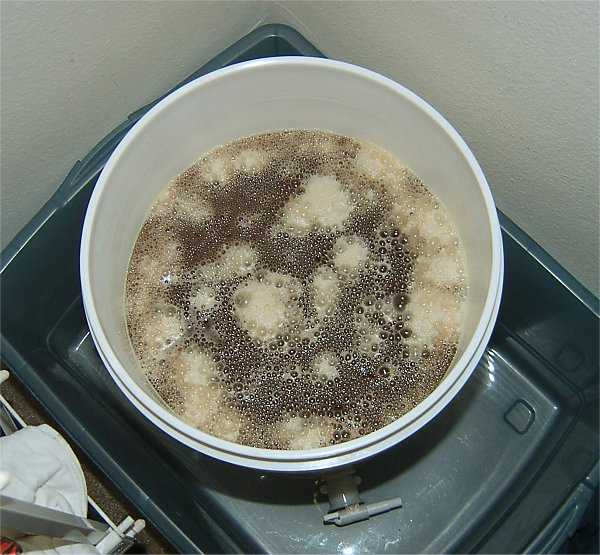Passload
Well-Known Member
- Joined
- Dec 24, 2005
- Messages
- 355
- Reaction score
- 13
I do the 1..2..3.. method. One week primary Two weeks secondary (for clearing the beer more) and (at least) three weeks in the bottle.

Passload said:I do the 1..2..3.. method. One week primary Two weeks secondary (for clearing the beer more) and (at least) three weeks in the bottle.

BrewProject said:if you think 1, 2, 3 will produce a better beer, then i can wait
EDIT: BTW, i appreciate both of you guys and the pointers...
Passload said:No problem for the pointers.
As for the 1, 2, 3 method it will for sure make the beer much better. Oh.... and do not forget to tast, your beer at every stage in the brewing process.
Cheers!
Justin
BrewProject said:BTW, i know some people live and die with hydrometers and others could care less. i guess as a beginner it's interesting to me at this point. so i would think i should take a reading at each stage also. true?
YesBrewProject said:i'll look up the formula again soon so i can measure my alcohol percentage. i would assume that after the primary most of the fermentation has taken place. true?















Willsellout said:Congrats. I just racked my first batch to secondary after about a week in primary. I had kreusen after about 6 hours within my pitch and fermentation was almost nonexistent within 24-36 hours. I took a taste when I was racking, and it does indeed need some aging, but the flavor is there and it is really good. I kept my batch at around 68-70 degrees by putting it in a bucket of water and letting it sit. It kept the temps constant which was really nice.
Dan
Fatabbot said:Yes, it's the foam that forms during fermentation.
You could certainly open up the lid to take a quick peek. Just don't do it every day.
 this means my temps are really 5-10 degrees lower than i thought which is great !!!
this means my temps are really 5-10 degrees lower than i thought which is great !!!BrewProject said:thanks man...
btw, i am beginning to believe that my thermometer may be reading a little high.
i bought an $8 floating thermometer at my LHBS yesterday. i have kept it right on top of my primary bucket lid since fermenting began and it has consistently read 80 degrees.
for grins just now i filled up a bucket of cold tap water and floated the thermometer in it. It read around 88 degrees. Then I was really wondering what was up. So I used meat thermometer in the same water and it read 78 degrees.
Running a test now back on top of the primary lid with both thermometers.
a couple of questions.
1. which should be more accurate, floating glass thermomter or stainless meat thermometer?
2. can both types be accurate for air temps as well?
i am beginning to think my floater is a lemon...this means my temps are really 5-10 degrees lower than i thought which is great !!!
Willsellout said:You know what I have found useful is a Fermometer. You attach it to the side of your fermenter and it shows the temp of the wort. They cost like a buck fifty a piece. It has been accurate within a degree when I checked. It's cool to just look at it on the outside, it makes things much easier. The water in the bucket helped me out a lot as my garage sits right arount 74 degrees. The water kept my temps about 4-6 degrees cooler. Although It's a lot hotter where you are and it might not do as much for you.
Dan
BrewProject said:ok, my air temp results are in with both thermometers. Glass 80 degrees. Stainless steel meat thermometer 70 degrees...
i think it's safe to say, i may have to return the glass to my LHBS and get another one.
any comments from you guys regarding this discrepancy....
apparatus said:You can test the accuracy of your thermometer by filling a regular drinking cup with ice and then add enough water to cover the ice. Place your stem thermometer in and you should get a reading of 32 degrees.

apparatus said:Cool! Sounds like you should have some good brew in a short while.


Truble said:Taste it at room temp. You will get the most flavor.
the colder it is, the less the flavors come out. that is true of finished beer as well.
